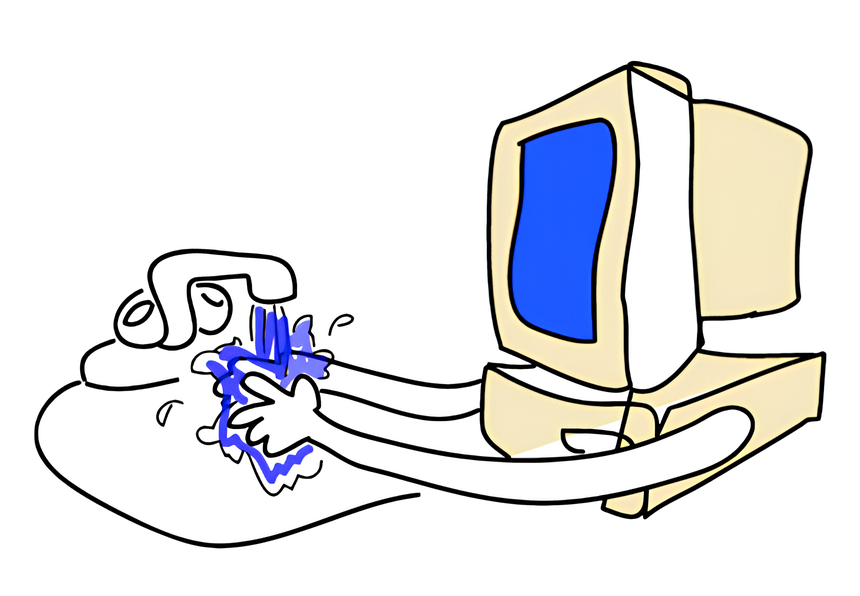As we step further into the digital age, our reliance on technology continues to grow. By 2025, nearly every aspect of our lives—from work and education to social interactions and entertainment—will be intertwined with digital tools. While this technological evolution brings convenience and innovation, it also introduces new challenges, particularly when it comes to maintaining digital hygiene . In this article, we’ll explore why digital hygiene is more important than ever in 2025 and provide actionable tips to help you stay safe online.
What Is Digital Hygiene?
Digital hygiene refers to the practices and habits individuals adopt to protect their personal data, devices, and online presence from cyber threats. Just as physical hygiene helps prevent illness, digital hygiene safeguards your virtual life from risks like hacking, identity theft, malware, and phishing attacks. With cybercrime projected to cost the global economy $10.5 trillion annually by 2025, practicing good digital hygiene is no longer optional—it’s essential.
Why Digital Hygiene Matters More in 2025
Increased Connectivity Creates Vulnerabilities
The rise of smart homes, wearable devices, and IoT (Internet of Things) gadgets means more devices are connected to the internet than ever before. Each device represents a potential entry point for cybercriminals. In 2025, protecting these interconnected systems will be critical to maintaining privacy and security.
AI-Powered Cyber Threats
Artificial intelligence is revolutionizing industries, but it’s also being used by hackers to create more sophisticated attacks. AI-driven phishing scams, deepfake videos, and automated malware are becoming harder to detect. Staying vigilant and informed is key to combating these evolving threats.
Remote Work and Digital Dependency
The shift to remote and hybrid work models has made businesses and employees increasingly reliant on digital tools. This trend has expanded the attack surface for cybercriminals, making personal and professional cybersecurity inseparable.
Data Privacy Concerns
Governments and corporations are collecting vast amounts of personal data. While regulations like GDPR and CCPA aim to protect users, breaches and misuse of data remain prevalent. Practicing digital hygiene ensures that you minimize your exposure to these risks.
Financial Implications
Online banking, cryptocurrency, and e-commerce have made financial transactions faster and more convenient. However, they’ve also opened doors for fraudsters. Protecting your financial information is crucial to avoiding losses.
How to Practice Good Digital Hygiene in 2025
Here are some practical steps to ensure your digital life remains secure and private:
- Use Strong, Unique Passwords
Avoid using simple or repetitive passwords across multiple accounts. Instead, create strong passwords with a mix of letters, numbers, and symbols. Consider using a password manager to generate and store complex passwords securely. - Enable Multi-Factor Authentication (MFA)
MFA adds an extra layer of security by requiring a second form of verification (e.g., a fingerprint or one-time code) in addition to your password. Enable it wherever possible, especially for sensitive accounts like email and banking. - Keep Software Updated
Regularly update your operating system, apps, and antivirus software to patch vulnerabilities and protect against known threats. Many updates include critical security fixes that can prevent cyberattacks. - Be Cautious with Links and Attachments
Phishing emails and malicious links remain a common tactic for hackers. Always verify the sender’s identity before clicking on links or downloading attachments. If something seems suspicious, err on the side of caution. - Secure Your Wi-Fi Network
Use a strong password for your home Wi-Fi and enable WPA3 encryption if available. Avoid connecting to public Wi-Fi networks without a virtual private network (VPN), which encrypts your internet traffic. - Limit Sharing Personal Information
Be mindful of what you share online, including on social media platforms. Oversharing details like your location, birthdate, or daily routines can make you an easier target for identity theft or stalking. - Regularly Back Up Your Data
Ransomware attacks, where hackers encrypt your files and demand payment to unlock them, are becoming more frequent. Protect yourself by backing up important data to an external drive or cloud storage regularly. - Educate Yourself About Emerging Threats
Stay informed about the latest cybersecurity trends and threats. Follow reputable sources, attend webinars, or take courses to improve your understanding of digital safety. - Audit Your Apps and Permissions
Periodically review the apps installed on your devices and revoke unnecessary permissions. Delete unused apps that may still have access to your data. - Adopt a Zero-Trust Mindset
Assume that no device, network, or individual is inherently trustworthy unless proven otherwise. Verify everything before granting access to your systems or sharing sensitive information.
Tools to Enhance Your Digital Hygiene
To make digital hygiene easier, consider using the following tools:
Password Managers: LastPass, Dashlane, or Bitwarden
VPNs: NordVPN, ExpressVPN, or Surfshark
Antivirus Software: Norton, McAfee, or Bitdefender
Encrypted Messaging Apps: Signal, WhatsApp, or Telegram
Cloud Backup Services: Google Drive, Dropbox, or iCloud
The Role of Businesses and Governments
While individual efforts are crucial, businesses and governments also play a significant role in promoting digital hygiene. Companies must invest in robust cybersecurity measures, conduct regular employee training, and prioritize transparency in data handling. Governments should enforce stricter regulations and provide resources to educate citizens about digital safety.
Conclusion
In 2025, the digital landscape will be more complex and interconnected than ever before. By practicing good digital hygiene, you can protect yourself from cyber threats, safeguard your personal information, and enjoy the benefits of technology without compromising your security. Remember, staying safe online is not a one-time effort—it’s an ongoing commitment. Start today by implementing the tips outlined above, and empower yourself to navigate the digital world confidently.
Final Thought: In a world where technology shapes our reality, digital hygiene is the foundation of a secure and resilient future. Don’t wait until it’s too late—take action now to protect your digital footprint.
